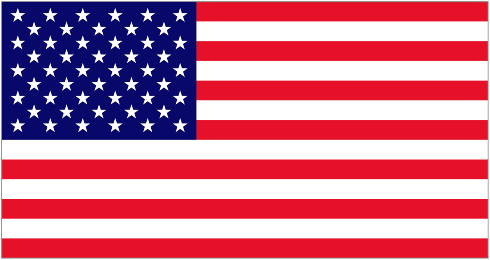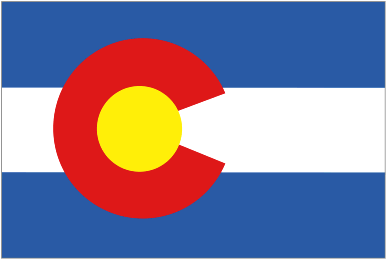Note to reader(s): I intend to get seriously writing for the remainder of my Christmas break (which ends on the 7th). Primary season is coming up, and now's the time for all of us to be looking into the candidates and issues most seriously. I will be filling this blog, and the identical one over on MySpace, with posts dealing with the race for the presidency. For the first of these posts, I want to discuss my general views on the '08 presidential race, and profile the candidate who comes closest of all to getting my all-out support.
I know most people my age, and the majority of people in general, don't care about politics much, if at all. The 2008 presidential election, however, presents us with a choice that will shape American politics and foreign and domestic policy for years to come. A presidential election is never a good thing to get wrong. But with America having problems in everything from healthcare, to our civil liberties, to immigration, to the war in Iraq, the stakes are raised so high that we simply cannot afford to get it wrong this time around. For this reason, if not for any other reason whatsoever, we all ought to be very seriously considering our options.
The most significant piece of my opinion on the 2008 presidential field is a general disappointment in the choice of "top-tier" candidates; frankly, they all suck, spewing the same dressed-up rhetorical stump speeches their respective parties have been giving for years, trying to distinguish themselves from each other through the slightest of differences in opinion. This is not the political system as I imagined it when I was just starting to learn about it in the 2000 election. This is not the America I thought I was growing up in, where people have a diversity of opinions that are all (or mostly) given a proper place in the national debates and elections.
And to make matters worse, it's all too heavily influenced by rich special interests and corporate lobbyists. Mike Gravel, as I recall, was fond of suggesting in the Democratic debates earlier this year that just about everyone else on the stage was a puppet of special interests ("Follow the money!" he would say, shaking his fist, though the fist-shaking may just be my imagination). Unfortunately, though Gravel tends to seem rather nutty in just about anything he does, he's not wrong. There is something ingenuine, something plastic about them all, and I can't help but feel like they don't really have the best interests of the people at heart, and are instead obsessed with getting the support of the special interests, at any cost.
Out of this disdain for the process and its front-runners came my love of Democratic candidate Dennis Kucinich. For the greater part of this year, I was in love with his campaign. He was the first politician I'd ever seen who is truly honest, intelligent, and reasonable. (generally, it seems, politicians are only one or two of those, if any at all). His ideas are all so fresh, so populist, so Democratic. Universalize healthcare. Reform trade negotiations with other nations, to reflect a pursuit of human rights and environmental protection. End the use of war as an instrument of foreign policy.
Recently, however, two things have happened that have persuaded me that he is not the best candidate in the race. Firstly, it has become quite obvious that his campaign is hopeless. He has not been treated fairly by the media, and his campaign simply hasn't come up with enough money or support to force anyone to pay attention. Secondly, I have found a candidate whose ideas make more sense than Kucinich's ever have, despite being on the opposite side of the political spectrum.
That candidate is Ron Paul.
Ron Paul is a Republican, currently serving as a U.S. Representative from Texas, a position he has held 18 of the 31 years since 1976. He is 72 years old, married (for 50 years) with 5 children. Before joining into the political arena, and during the lapses in his Congressional service, he has been an ob/gyn physician, delivering over 4,000 babies. He was also a flight surgeon in the Air Force from 1963 to 1965.
But it is his politics, not his personal life, that make this man extraordinary. In a day and age when politicians shape their views around the shifting of special interests and political parties, Ron Paul has not only stuck to his beliefs for his whole political life, but has based those beliefs on the most simple, powerful foundation imaginable: The United States Constitution.
And it is that foundation that makes his message so powerful. He's not treading new, radical ground, but urging us to go back to the old way of looking at the federal government: In the words of Thomas Paine, revolutionary and author of "Common Sense" (and who I'm possibly related to), "That government is best which governs least."
Profiling Dr. Paul's viewpoint on every issue facing America would make this blog far longer than I want it to be. But I'd like to look at a few highlights:
He is a strong believer in states' rights, prefering to leave issues like education, stem-cell research, abortion, and marriage rights completely out of the hands of the federal government.
He is a proponent of a non-interventionist foreign policy, in which the U.S. does not police the world with its military, but instead pursues, in the words of Thomas Jefferson, "Peace, commerce and honest friendship with all nations; entangling alliances with none." He says the war in Iraq is patently unconstitutional; in the days leading up to the war, he repeatedly put forth a resolution to declare war on Iraq, and it was repeatedly struck down.
He believes the civil liberties of the people are vital to the interests of the nation, and that they have been seriously undermined by the war effort. In the words of James Madison, another of our founding fathers, "The means of defense against foreign danger historically have become the instruments of tyranny at home." He believes that the best way to be a strong nation is to be a nation of free people. Liberty from government control and regulation is central to his message, and his belief system.
He wants to abolish the IRS and all federal income taxes and repeal the 16th Amendment that allows for it, citing the fact that income taxes account for only a third of federal government revenue, and that cutting federal spending by a third would put it at 2000 levels, which obviously wouldn't be very hard to do. In addition to this, he wants to phase out government entitlement systems like social security and welfare, prefering instead to allow everyone to keep the fruits of his or her labor and use them as he or she sees fit; again, a view straight from Jefferson, who believed we ought to "prevent the government from wasting the labors of the people under the pretense of taking care of them". Ron Paul has great confidence in the free market, and in each person's ability, right, and responsibility to take care of themselves.
Through all of this, there is a clear theme of going back to the America that the founders intended to create, the America they set forth in the Constitution. In fact, Dr. Paul has a nickname on Capitol Hill, "Dr. No", which emphasizes his extreme unwillingness to vote for any bills or resolutions that are not expressely permitted by the Constitution. He is, in short, a true conservative, holding to the beliefs that made that political mindset actually make sense before it was hijacked by social conservatives in the past few decades.
And unlike the other "long-shot" candidates in the race, Ron Paul's views have actually caught on, putting him in a position from which it is not entirely impossible for him to win the Republican nomination. His current fourth quarter fundraising total is $19.4 million, more than any other candidate in the race, including over $6 million on one day, December 16, the anniversary of the Boston Tea Party. And this fundraising is entirely grass-roots, spontaneously organized by people who have no official connection to the campaign. His message has found a large niche in the Internet community, a community that has, through these donations as well as all the straw polls and post-debate polls that Paul has won, proven that it has the power to make a candidate viable.
I do have my misgivings about Ron Paul. I don't have the same unquestioning faith in the free market as he has. I think the federal government needs to be involved in some things like healthcare, in order to make sure the vital needs of the people are handled properly. I have said before that universal, socialized healthcare is the way to go, and I don't think there's anything Ron Paul could say to me to change my mind on that. I also disagree with him on some of his personal social views, but he says those things should be left up to the states, so it doesn't matter anyway. All things considered, though, he is the best candidate that I see in the race right now.
Any thoughts on this are greatly appreciated.





